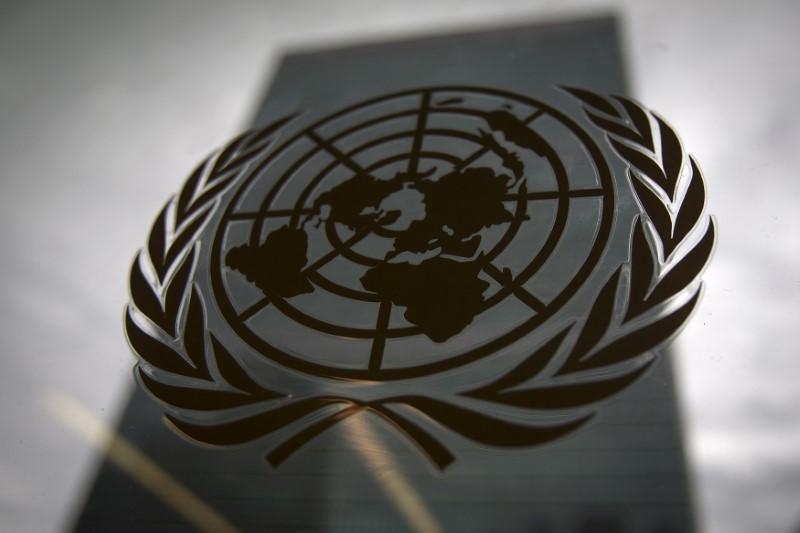Statement by Deputy Head of the Russian Delegation Mr. Konstantin Vorontsov at the Thematic Discussion on Conventional Arms in the First Committee of the 77th Session of the UNGA
Mr. Chair,
The Russian Federation has consistently called for further enforcement of the regime of the Convention on Certain Conventional Weapons (CCW) by ensuring universal adherence to it and to its Protocols, as well as implementing their provisions in good faith. We welcome the outcomes of the Sixth Review Conference of the CCW.
We commend the efforts of the Group of Governmental Experts (GGE) of the States – Parties to the CCW on lethal autonomous weapons systems (LAWS) in 2022. The Group managed to adopt a report with meaningful conclusions and recommendations and thus lay a foundation for the future discussions on LAWS under the Convention which is considered to be the best venue for these purposes.
In general, we attach significant importance to this issue. This has been evident especially in the adoption of the Concept on elaboration and application of the weapons systems with the use of artificial intelligence-based technologies in the Armed Forces of the Russian Federation declared on 26 July. At the same time, we believe that the norms of international law, including international humanitarian law, are sufficient and fully applicable to these weapons systems.
We also remain focused on the course of discussions on the use of explosive ordnance (EO) in densely populated areas. We believe that the EO‑related problems can be resolved only through implementation in good faith of the existing IHL norms.
In recent years, a сross-cutting and multifaceted problem related to improvised explosive devices (IEDs) has become acute. It is exactly because of IEDs manufactured out of various munitions there are losses among the military and civilians. IEDs pose a serious danger to the civilian population due to a number of reasons. Due to their home-made mode of production, the IEDs are especially difficult to detect and eliminate, this also makes them unpredictable in terms of functioning and effects. In the aftermath of conflict, the IEDs can be exploded not only directly by a man, but also due to other natural and man‑made causes.
We believe it is necessary to discuss this issue at the expert level in the framework of Amended Protocol II to the CCW. At the same time, we would like to urge the States-Parties to refrain from broad interpretation of the CCW mandate on IEDs. Any further IEDs-related proposals should first and foremost be consistent with the object and purpose of the Convention. Russia supports the idea of regular updates of compilations of existing guidelines, best practices and other recommendations to address illicit diversion or use of the materials required to produce IEDs.
Mr. Chair,
In the context of the CCW, the international community should condemn and respond to the criminal actions by the Kiev regime against the people of Donbass. The number of daily violations of norms and principles of international humanitarian law (IHL) by the Ukrainian Armed Forces, such as placing heavy munitions in residential areas, the use of human shields and civilian infrastructure for military purposes, prove that Ukraine has deliberately used inhumane warfare in violation of IHL.
We state the facts of targeted mining of roadsides, pathways, bridges, dams, residential areas, schools and hospitals by the Ukrainian Armed Forces. In recent years, the Ukrainian military have de-facto seeded with anti-tank and anti-personnel mines the whole fields mainly in agricultural areas or lands designated for agricultural needs. Mining of a number of villages and cities in the Donbass region with anti-personnel mine "Lepestok" is yet another flagrant example. The issue related to Ukrainian mines in the Black Sea which pose a maritime threat also deserves attention.
All the acts mentioned above represent a direct violation of IHL basic provisions, including Amended Protocol II to the CCW. At the same time, Kiev breaches the Convention on the Prohibition of the Use, Stockpiling, Production and Transfer of Anti-Personnel Mines and on their Destruction (Anti-Personnel Landmines Convention) to which Ukraine was a Party. We call upon the UN Member States to influence the Ukrainian authorities (including under Anti‑Personnel Landmines Convention) and to effectively prevent dire humanitarian consequences for the civilian population.
Mr. Chair,
We attach significant importance to the issue of illicit trafficking in conventional arms, we advocate the more effective implementation of the UN Programme of Action to Prevent, Combat and Eradicate the Illicit Trade in Small Arms and Light Weapons in All Its Aspects aimed at blocking the diversion of arms to illicit markets. Of course, in order to fulfil this task the whole international community should coordinate efforts while preserving the UN central role.
At the same time, we highlight the importance of the United Nations Register of Conventional Arms as one of the main tools to ensure transparency and international security by tracing and identifying destabilizing accumulations of the arms in various parts of the world. However, we are cautious about the attempts by some States to extend the scope of the Register, especially in view of the cases when this mechanism was used earlier for the purposes other than those it was designed for, including while defining the arms embargo criteria introduced under the UN Security Council.
The Russian Federation still finds it inappropriate to adhere to the Arms Trade Treaty in its current form, to participate in its official events even as observers. At the same time, we consider the Treaty standards to be much lower compared to the Russian standards. Moreover, the practical implementation of the Treaty raises serious concerns. The cases when some parties continue to supply weaponry directly or indirectly to the areas of armed conflict are inadmissible.
Thank you.
